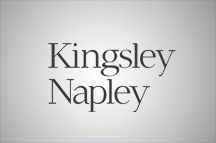Dominic Cummings’ headline-grabbing appearance before the Covid select committee last week was in stark contrast to his 2018 refusal to appear when summonsed by the Culture, Media and Sport Committee investigating “Disinformation and ‘fake news’”.
Ironically, Mr Cummings then accused the DCMS committee of being more interested in “grandstanding than truth-seeking”. Faced with a summons compelling his attendance, he made clear to the committee chair Damian Collins that he would “not come…regardless of how many letters you send or whether you send characters in fancy dress to hand me papers.” His rationale at the time was that, in light of his possible involvement in on-going criminal investigations, it was improper for the committee to demand that he face a public interrogation at which he would be afforded none of the usual legal protections (the privilege against self-incrimination and the right to silence, to name but two). Not, you might think, an unreasonable position to take. But the committee took no heed and a summons was issued.
That episode ended in March 2019 with the House of Commons Committee of Privileges finding Mr Cummings in contempt of parliament. His claim to be in peril of criminal prosecution was rejected, because “the onus is on [the witness] to demonstrate that that risk is a significant one”. When deciding upon an appropriate sanction, the Committee recognised that the House’s historic power to fine or imprison contemnors had not been tested in modern times and might be prone to challenge in the courts; accordingly the most severe penalty available was to “admonish” Mr Cummings. This did not prevent him assuming a senior government role only a matter of months later.
While Mr Cummings affects disinterest in the face of reputationally damaging events, many others might feel - reasonably - that being held in contempt of parliament would impose an intolerable stain on their character and therefore consider themselves unable to resist the demands of a parliamentary committee, even if attending and answering questions might provide material for other parties (such as law enforcement or regulatory investigators) that could be used against them. With such significant consequences in these circumstances, decisions over attending - and what evidence to give - are delicate ones. The House of Commons appears not to appreciate that witnesses may have well-founded reasons for fearing answering questions.
Motivated by a seemingly growing trend of witnesses declining to attend select committee hearings, the House of Commons is currently considering whether to establish a statutory power to compel attendance, whereby refusal would be a criminal offence. While it is envisaged that there would be a “reasonable excuse” defence, disappointingly the report that recommends this significant change fails to give any examples, or at all to address the invidious position of those are forced to attend while simultaneously being at risk of criminal or regulatory investigation. This substantially undermines the important safeguards of privilege against self-incrimination and the right to silence. These are fundamental rights based on fairness and the presumption of innocence.
It is all very well to assert the importance of parliament and the need for committees’ work to be effective, but witnesses’ reasonable rights and protections should always take precedence.
co-authored by David Sleight and Edmund Smyth, partners in the criminal litigation team at law firm Kingsley Napley LLP












